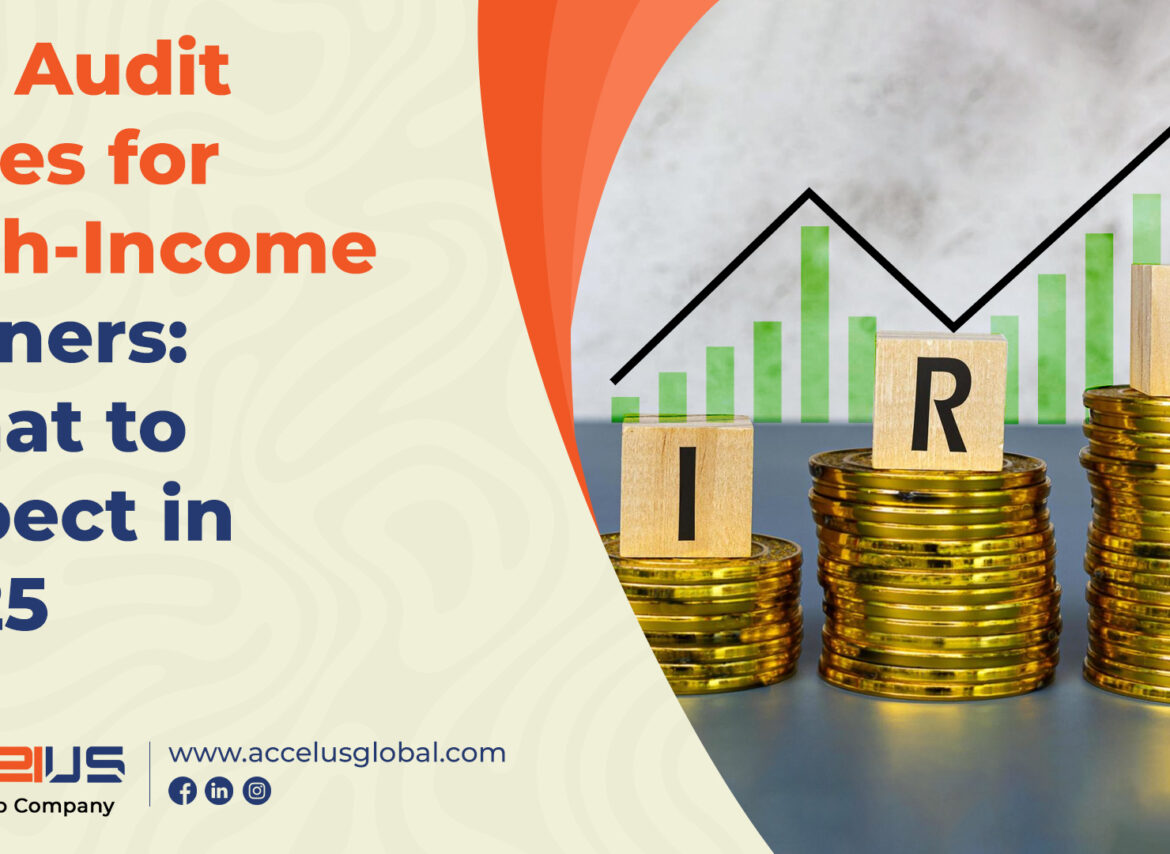No one wants to face an IRS audit, but for high-income earners, the risk of being audited is notably higher—and it’s set to increase further in 2025. With expanded funding and a strategic shift in enforcement priorities, the IRS is focusing more on wealthy taxpayers and complex financial situations. Here’s what you need to know about the latest trends and how they might affect you.
Rising Audit Rates for the Wealthiest Taxpayers
According to recent IRS data and strategic plans:
- Individuals with incomes over $10 million saw audit rates of about 11% in 2019, which are projected to rise to 16.5% by 2026.
- Large corporations with assets over $250 million face audit rates increasing from 8.8% in 2019 to 22.6% in 2026.
- Audits of large, complex partnerships with assets over $10 million are expected to increase tenfold, from 0.1% in 2019 to 1% by 2026.
This reflects the IRS’s focus on recovering significant revenue from taxpayers with the greatest potential for underreported income or noncompliance.
Why the Increased Focus?
The IRS’s enforcement shift is driven by several factors:
- Potential Revenue: Auditing high-income taxpayers yields more tax revenue per audit compared to audits of lower-income taxpayers.
- Complexity: Wealthy taxpayers often have multiple income sources, investments, trusts, and foreign assets that require detailed scrutiny.
- Increased Funding: The Inflation Reduction Act provided the IRS with billions in additional enforcement funding, enabling expanded audit capabilities.
- Advanced Technology: The IRS is using AI and data analytics to identify discrepancies and target audits more effectively.
Who Else Is Under Increased Scrutiny?
- Taxpayers earning over $400,000 are facing increased audit rates compared to previous years.
- Cryptocurrency holders are a key focus, with the IRS expanding enforcement on digital asset transactions.
- Expats and taxpayers with foreign accounts are also under heightened oversight, especially regarding FATCA and FBAR compliance.
Audit Rates Remain Low for Most Taxpayers
Despite increased audit rates for the wealthy, audit rates for taxpayers earning under $400,000 remain historically low, generally below 0.5%. The IRS has committed to not increasing audit rates for small businesses and middle-income individuals.
Common Audit Triggers for High-Income Earners
- Large or unusual deductions and credits
- Complex partnership transactions
- Monetized installment sales and abusive tax shelters
- Unreported foreign income or assets
- Cryptocurrency transactions without proper reporting
Tips for High-Income Taxpayers to Prepare
- Maintain meticulous records of all income, deductions, and transactions.
- Ensure accurate and transparent reporting of foreign income and cryptocurrency holdings.
- Consult tax professionals experienced in high-net-worth audits.
- Review tax returns proactively to identify and correct potential issues before filing.
Conclusion
The IRS is intensifying audits on high-income earners and large entities in 2025, leveraging increased funding and advanced technology to target complex tax situations. While audit rates remain low for most taxpayers, wealthy individuals should be especially vigilant in maintaining accurate records and seeking professional tax advice to navigate the heightened scrutiny. Get in touch with AccelUS to know more!





